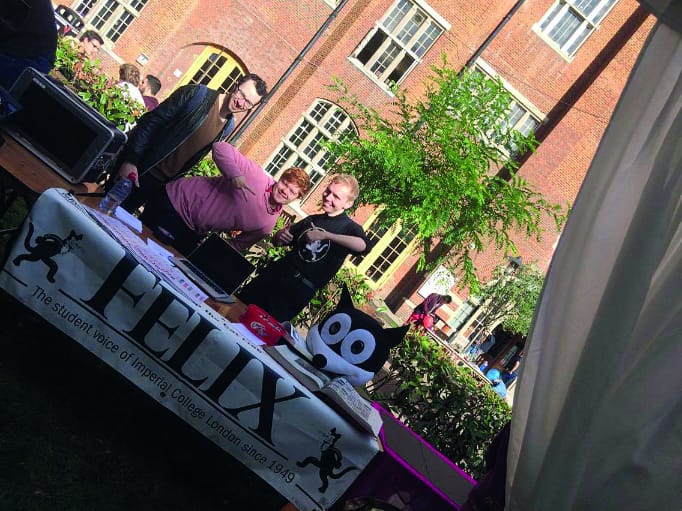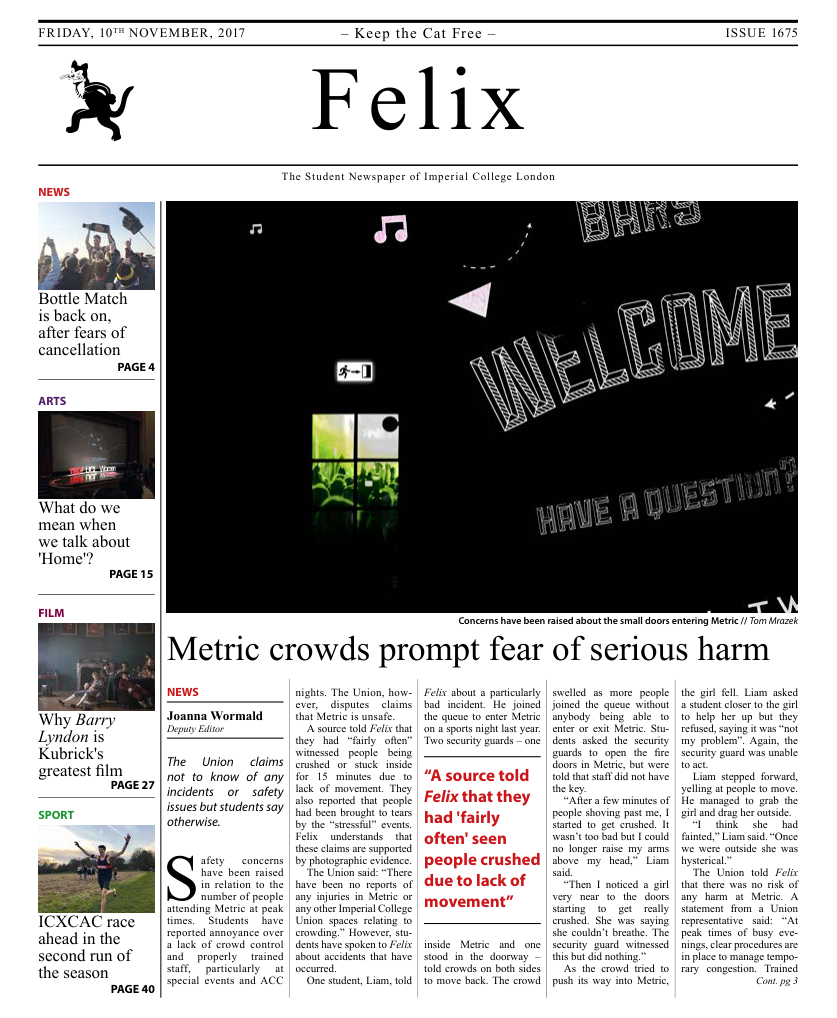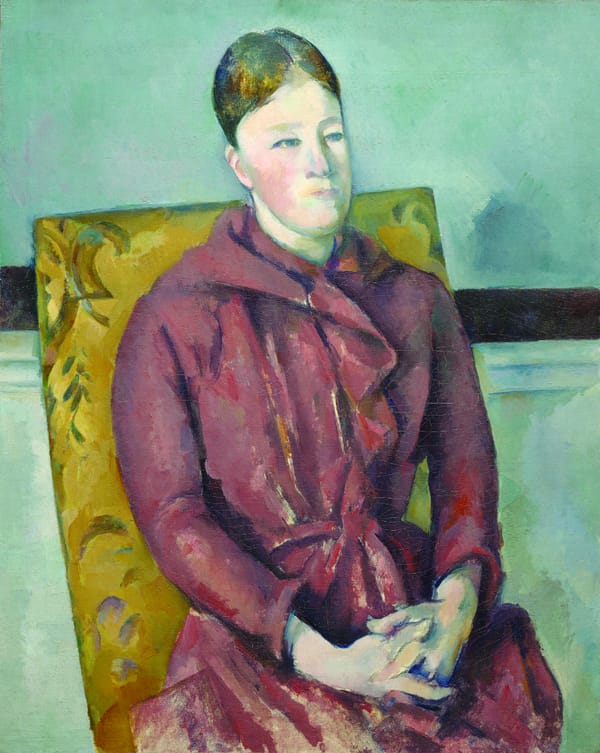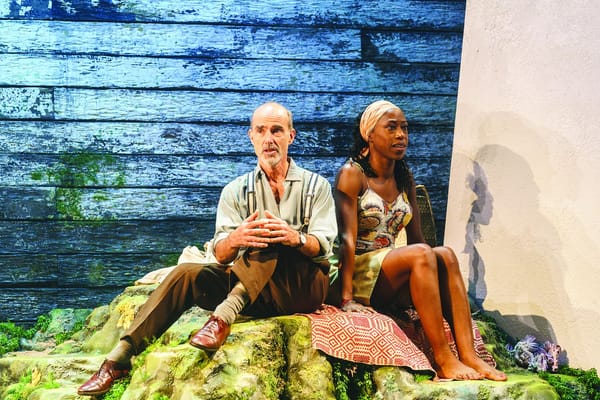Clash of Cultures: Can the arts thrive in the science dominated campus of Imperial?
Arts Editor Adam Gellatly talks with Felix’s very own Editor in Chief Fred Fyles to chat about arts at Imperial and his current and previous roles at the paper.

Adam: Readers will know you as the current Editor of Felix, but you were involved in the Arts Section at the paper before that. Can describe how that involvement came about?
Fred: I’ve always been interested in arts and culture. I grew up in London and when I was younger I went to the theatre a lot and my parents would take me to art galleries. Coming to Imperial, I knew I wanted to write for the paper and get involved with the Arts section. I mainly started doing reviews of visual culture – I think my first article was about the Turner Prize – and theatre. Towards the end of first year I started really getting into film and in second year I took a Horizons course that introduced me to the philosophy and theory of art. Then in third year I started editing with Felix and that got me interested in graphic design. It’s been bits and bobs throughout the years leading to an accumulation of interests.
A: Were you interested in the arts at school?
F: At A-Level I did Biology, Chemistry, Maths, and Further Maths, so not very arty at all. I did History AS, but that was as humanities as it got. Coming to university changed that a lot. I grew up in North London, but I went to school near Hertfordshire where there’s not a huge amount of cultural stuff to do. In first year, living in South Kensington where the South Bank and the Tate are just a bus-ride away, it really opens up how much you can go and do and see. That’s also when I started getting into the student discounts. When I was in first and second year, Barbican used to run the FreeB scheme – every single month they’d release loads of tickets – and I’d go to five or six things a month from that.
A: Do you think Medical students have more of an open-mindedness when it comes to interests in the arts, compared to those studying a natural science or engineering?
F: My impression of Imperial is that all subjects are pretty similar in terms of how artistic people are; I think in all subjects there’s a minority that are into the arts, but those that are go deep. No matter what subject you’re in you can find your niche and people who are interested in arts as well. I guess with medicine, there’s more of an opportunity to bring what you do in arts into your vocational practice. Last year I did six weeks in a psychiatry placement and one of the consultants there said, “Everything you do and everything you see can feed into your psychiatry practice”. You have to understand where the patient is coming from, where they’re located in their cultural context.
A: As we’ve discussed before in this segment, there’s the perception from outside Imperial – and from perhaps the inside – that we’re all about STEM here as that’s all we study. Do you think the quality of the arts output at Imperial suffers from the lack of, say, English students?
F: Focusing on Felix specifically, you might look at the fact we have no English, Journalism, or History students and think that means very few people are going to get involved, or that there’ll be very few writers of quality. That’s definitely not the case. The writers and editors we have are top quality and really committed. I actually think it’s a benefit that we don’t have English or Journalism students here; it means the people who get involved in arts at Imperial are not getting into it with the mind of doing it as a career and building up a portfolio, but because they really enjoy it.
But if we did have those English students, I think the team would be bigger. It would relieve some of the pressure on the section editors – they’d definitely have more contributors. So, in some ways you could say the quality does suffer a little. If we had a whole raft of Journalism students I think we’d probably have a bigger paper with more content, but I don’t think the dip in quality is a noticeable as you might expect. If you compare Felix to Pi Media at UCL or The Beaver at LSE they’re of pretty similar quality.
A: Because we at Imperial haven’t been taught a formula for how to write an article do you think that’s an advantage we have, to avoid everything becoming stale?
F: Speaking from experience in medicine – and I think it’s pretty similar for other disciplines as well – you spend a lot of your time reading and analysing data and the scientific literature. I think that tempers your mind to going through a lot of material and then distilling it down to your lab report or coursework. So, I think that’s one thing that scientists have that isn’t as prominent in other subjects.
I think as well, for me it’s really important as an editor that, although you obviously want your writers to be good and up to scratch, you also want them to have their own personal style and you don’t want to impose your style on them. So, throughout my editorial career I’ve always been very careful to look at a piece and think “Am I changing it because it needs to be changed? Or am I changing it because this is how I would write it?” It’s a fine line between those two. Since the students we have here haven’t been taught “Here is the style that you should be writing in” it frees them up a little more to write in their own way.
A: Normally at this point, I’d ask if you’re interest in the arts is a hobby, or if they want to pursue it as a job, but Editor in Chief of Felix is, in fact, your job. Was there an experience or an event that motivated you to run for the position?
F: To be honest, I’d been thinking about it for three or four years – when you do a medical degree, you have a massive amount of time to dwell on stuff – and I’d always planned to run in this year. I think the most formative experience was in my third year when I was running the Arts section with Kamil McClelland, another medic in my year, and during that year we both got really involved. Our studies probably suffered a bit, but we were putting out six to eight pages of Arts a week, and we edited three editions of the Phoenix arts magazine on top of that. It was a really rewarding experience and probably the trigger point to get more involved in Felix. And here we are today.

A: And how are you enjoying the job so far?
F: We’ve had some IT issues over the past few weeks. We’ve had no computers in the Felix office so I’ve been putting everything together which is not as fun. The first few weeks before that were really good and I think we were really bonding as an editorial team and learning their skills. For the past few weeks we haven’t been able to do that so it’s been quite frustrating. Apart from that it’s been very good. Oh, and people complaining have not been good either, but I think I’m starting to develop a thick skin.
A: Do you have any plans for the paper this year that you’re excited to enact? Obviously, the style of the paper has changed this year.
F: Last year it was a very free layout and I think it was quite ambitious. This year we’ve got a lot of new people in who haven’t used InDesign before and I think last year’s layout would have been really tough on them. So, we simplified it and stripped it back down. In terms of future developments, one thing I’m really trying to push this year is the Longread. We’ve had two so far; they’re three to four-thousand words on a single topic and people can go really in-depth. We’re going to be trying to publish more of those throughout the year. More generally, holding the College and the Union to account more, and doing some more investigative journalism. I feel for the last couple of years there hasn’t been a huge amount of that done at Felix.
A: When writing an investigative journalism piece are you more interested in getting a scoop, or writing an interesting piece?
F: What appeals to me more is writing the interesting pieces: it’s the sexy bit of journalism that everyone’s interested in. The New Yorker, for example, does a lot of investigative journalism where they get all this data and all these different viewpoints and draw it together into a really well-written narrative. It goes back to the New Journalism School in the ‘60s where you have people like Joan Didion, and Truman Capote writing In Cold Blood. That kind of journalism I find really exciting and something I’d like to pursue more of. I’m not saying Felix is going to be as good as Joan Didion’s work, but we have high aspirations.
A: Looking to the future, there’s a chance that in the next ten years Felix will change a lot, especially in terms of how it’s published with a battle between print and online. How do you see the paper changing?
F: I’m a strong proponent of print and print media, but I think it’s a really difficult time for print and journalism in general. In terms of Felix I’d love it to carry on in print, but I think there’s general pressure to move uni publications to online-only platforms. This year the Union is carrying out a Felix Review where they look at the funding model and the aims of the paper; it’s not being done with the goal of moving away from print, but one of the findings might be that the paper is not cost effective and having it in print doesn’t bring a particular value. I’d disagree and say it has a lot of value, but you can’t measure the monetary value of print and the benefits it brings, you can only measure the negative, which is how much it costs.
That being said, print media is a bit like vinyl records, in that it’s experiencing a bit of a surge right now, especially with micro-publishing. And I think people are getting tired of online journalism. If you look at a website like The Independent and the amount of advertising they need to sustain that model, I think that’s turning a lot people off and turning them back to print media. We’ll see what happens, but whatever comes of the Felix review I’m going to be pushing to keep the paper in print.
A: Whether it’s physical or digital, how do you see Felix’s role in the future changing?
F: The motto of Felix is ‘Keep the cat free’ and I think that’s going to continue. I think have a free press is the cornerstone of any democracy, especially a student democracy. The core aims of Felix are to represent the student voice and to ensure their views are heard by the College and Union and ensure no changes are made about you, without you. That’s something I strongly believe in and I think going forward if Felix loses that, there’s no point in having it anymore.








